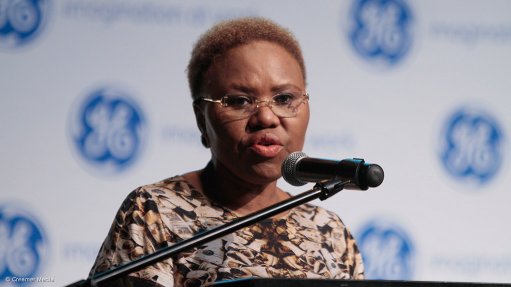
Photo by: Duane Daws
South Africa remained divided into two economies and, a year after its establishment, the Department of Small Business Development (DSBD) was working relentlessly to narrow the rift, Minister Lindiwe Zulu said on Friday.
South Africa’s “first” economy was modern, integrated with the global economy and held the bulk of the country’s wealth, while much of the informal sector fell under the “second” underdeveloped economy, where the majority of the poor remained underserved and isolated from the first and global economies, unable to contribute meaningfully to the wealth of South Africa.
The majority of the unemployed labour force in South Africa relied on the informal sector for survival.
“We need to find solutions and emerge with building blocks for a sustainable policy framework that places SMMEs [small, medium-sized and microenterprises] at the centre of job creation and economic growth and development,” Zulu told delegates at the second National SMME Policy Colloquium, in Sandton.
However, the growth of small business and the radical economic transformation required remained a significant challenge and, to unlock the potential of SMMEs and cooperatives, the DSBD identified five critical areas in which improvement could play a major role in “turning the tide” in favour of the small business sector.
These included public sector procurement, increasing participation in private sector value chains, simplifying the policy and regulatory environment, access to finance and support to township and rural economies.
While all the department’s available resources would be thrown behind the national programme, collaboration between all stakeholders would lead to solutions to mitigate the common, recurring challenges that SMMEs faced, including a lack of access to market and finance, poor infrastructure for businesses to operate from and the high costs of doing business, besides others.
Speaking at the colloquium, Small Business Development Institute CEO Xolani Qubeka said the second National SMME Policy Colloquium was aimed at bedding down the short-, medium- and long-term strategies needed to further advance aims established a year ago.
The inaugural gathering last year resulted in recommendations and resolutions formulated around stabilising and upscaling existing businesses, raising economic activities in underserved regions, simplifying and streamlining business registration processes and raising the levels of entrepreneurships.
“We know what the problems are,” he told delegates on Friday, indicating the urgency now called for to advance on the strides made over the past year.
In line with this, the DSBD was finalising a study that assessed the effectiveness and efficiency of its current entities and programmes, including recommendations on the upscaling and alignment of the department’s programmes, as well as an implementation plan to guide execution. It was expected to be released in November.
“The design stage is geared towards formulating strategic recommendations on the optimal programme structure to deliver the department’s strategy,” Zulu commented.